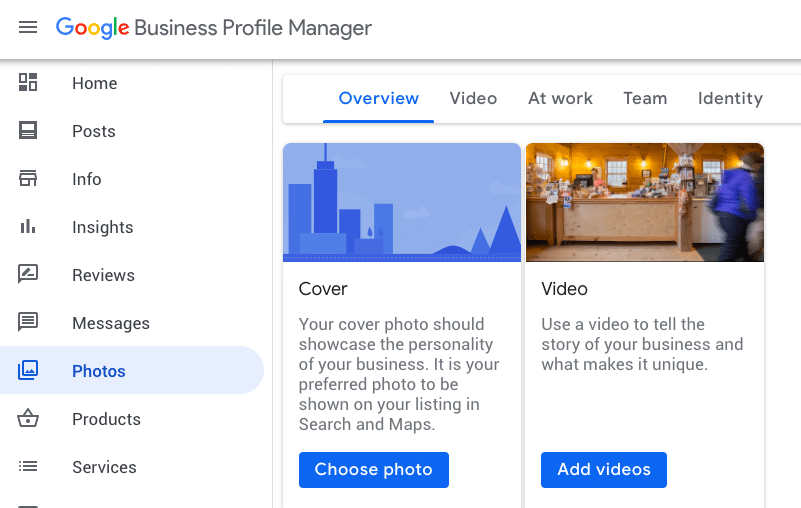Get Ahead of the Curve - The Ultimate Guide to AI for Marketers in 2023
As technology continues to grow, digital marketers are having to adjust their strategies and processes to stay ahead of the curve. Never has this been more relevant than in the realm of artificial intelligence (AI). As AI-based systems become increasingly powerful, it's vital for any business owner who is serious about their marketing efforts to make sure they understand how AI can help them succeed in a highly competitive marketplace. In this blog, our experts provide an overview of everything you need to know about using AI for your marketing efforts in 2023.
What is AI and why should marketers care about it
Artificial Intelligence (AI) is a computer system capable of performing tasks that traditionally require human intelligence and effort, such as decision-making and problem-solving. It can take many forms, from something as simple as automated chatbots to more complex virtual agents and visual recognition systems.
AI has the potential to revolutionize the way marketers do business in the digital age by automating mundane tasks, providing better customer insights, and helping to create more personalized experiences for customers.
The history of AI and its current state
Artificial Intelligence (AI) is a technology that has been developing since the 1950s. Going through various stages of development, AI has now become an integral part of our lives in areas such as robotics, machine learning, natural language processing and computer vision.
AI systems can learn from data to recognize patterns and make decisions without explicit programming instructions. This allows for faster problem solving than traditional methods of software engineering, making it useful in all types of industries from healthcare to finance. AI-based applications are increasingly being used to automate processes previously done by humans, helping businesses increase their productivity and efficiency while reducing costs. Furthermore, new developments in AI have made it possible for machines to display more human-like characteristics such as planning abilities or understanding human emotions. AI is continually evolving, and in the future we can expect to see it play a larger role in our lives.
How AI will change marketing in the future
As AI technology continues to develop, the potential for its application in marketing has become increasingly clear. AI can be used to analyse customer data and behaviour, as well as predict future trends. This allows marketers to create more personalized campaigns that target specific audiences. AI also enables marketers to automate tedious tasks such as content and media creation, making it easier to provide customers with a better experience across all marketing and social media platforms. As a result, business owners can focus their energy on more creative projects, resulting in higher efficiency and revenue.
Artificial Intelligence (AI) is a computer system capable of performing tasks that traditionally require human intelligence and effort, such as decision-making and problem-solving.
Examples of how brands are using AI today
AI is a rapidly advancing technology, and huge brands are beginning to take advantage of its capabilities. Companies like Microsoft, Amazon and IBM are all leveraging AI for analytics, marketing, product development and customer experience improvement. For example, Microsoft applies AI algorithms to its products for image recognition and text analysis to improve user experience. Similarly, Amazon uses advanced machine learning algorithms to provide personalized recommendations to customers based on their shopping history.
The risks and challenges of using AI in marketing
AI marketing offers huge potential, but because it is still a relatively new technology there are risks and challenges that marketers need to consider. One of the main risks with AI marketing is data privacy and security. As AI systems require large amounts of data in order to function, this can present an increased risk of theft or misuse of customer data if proper security protocols are not put in place.
Another challenge associated with using AI in marketing is ensuring accuracy and validity. Poorly designed algorithms may produce inaccurate results which could lead to wrong decisions being taken and affect your Google rankings. Additionally, there is a risk of bias creeping into AI systems if data sets are not properly balanced and diverse. This could lead to inaccurate predictions or assumptions about customer behaviour which could be damaging to a company’s reputation or cause serious ethical implications.
Finally, another challenge associated with using AI in marketing is the cost of implementation. Despite the potential benefits that utilizing AI may offer, setting up and maintaining an AI system can quickly become expensive, particularly for smaller brands. Marketers must take this into account when budgeting and assessing their return on investment before investing in any new technology.
Tips for implementing AI into your marketing strategy
1. Use AI content generation tools to automate manual tasks and make decisions faster. This can help boost efficiency while also reducing costs associated with human labour, as fewer people are needed to complete a given task.
2. Make sure that you’re using algorithms ethically, transparently and responsibly when implementing AI into your marketing strategy. This includes fact checking AI derived information to ensure it aligns with regulations, professional literature and real life experience.
3. Be aware of the potential ethical issues surrounding the use of AI. This includes things like data privacy concerns, algorithmic bias, and possible misuse or exploitation of users’ data.
4. Ensure that you have the right infrastructure in place for collecting user data, training models correctly and securely storing any collected data. Adequate security measures must be taken to protect data and user privacy.
5. Become familiar with the use of AI software tools and learn how to manipulate the data or information you put into it, to provide the most accurate and beneficial outputs for your customers. AI is not a substitute for professional experience or hard work.
Summary
Artificial intelligence is revolutionizing the marketing industry and will continue to shape the future of marketing in 2023 and beyond. Organizations that get ahead of this trend in the coming months have a leg up on their competition, especially in the local SEO space. Now is the time for companies to leverage AI technology to gain insight into customer activity for advertising, track sales performance, identify areas of opportunity, and create personalized experiences for customers.
For more information how we can integrate AI into your business marketing, call our web designers in Sheffield today, or visit our website to learn more about how we can help you outpace your competition and get ahead of the curve!
MAKE YOUR WEBSITE. MAKE YOUR MONEY.
Our web designers and SEO Sheffield experts will help you make more money through your online marketing, so that growing your business is easier than ever before!
All Rights Reserved | Ntwine International

